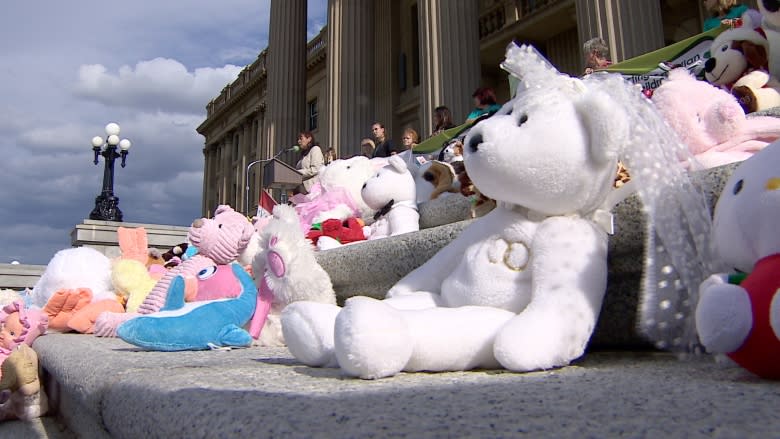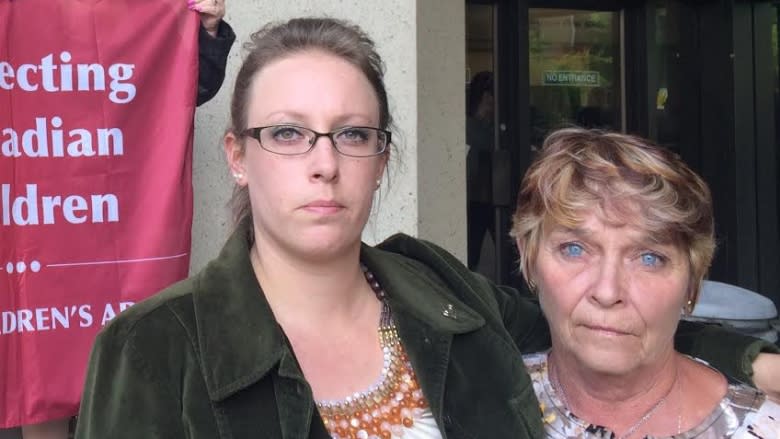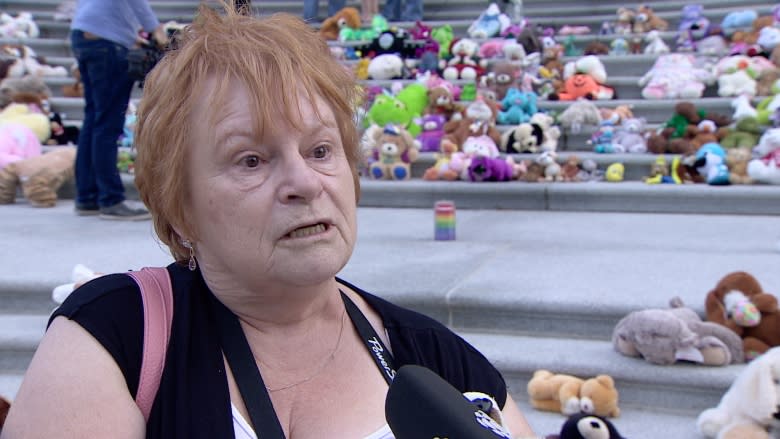Delonna Sullivan inquiry: conflicting accounts from RCMP, social worker
A fatality inquiry looking into the death of an infant girl in foster care has heard conflicting accounts of how she was removed from her home in the first place.
Delonna Sullivan was removed from her mother in April 2011 by a rare emergency order, which meant the four-month-old could be placed in provincial care without a judge's order. The girl was placed with a foster mother. Six days later, she was found dead in her playpen.
Tuesday, RCMP Constable Bryan Brooks testified that he and a social worker spent only a couple hours in the home of Jamie Sullivan before removing her daughter.
That doesn't match what the social worker told the inquiry on Monday: she said she spent an entire day investigating Sullivan's home before taking the girl.
An emergency order is only used if a child is thought to be in "imminent danger." The social worker said the house was messy and poorly maintained. She also had concerns about possible drug and alcohol abuse by Delonna's mother.
Sullivan denied the allegations, saying that Delonna was in no danger.
Monday heard testimony from the support worker who dealt with the foster mother who took in Delonna. He testified that the girl had to sleep in the playpen because the home lacked a crib, although he was assured this was a temporary issue.
At one point, she was left in the playpen for five hours without anyone checking on her.
The worker admitted that he did not visit the home, nor see the playpen, either before placing Delonna in the home or after she had arrived.
Policies were not followed, mother claims
The fatality inquiry is scheduled to run for the rest of the week and will hear from 11 witnesses, including RCMP and the foster mother. Afterwards, Judge Steven Bilodeau will pen a report that may include recommendations on how to prevent similar deaths in the future.
However, Sullivan is skeptical the inquiry will do anything to stop other children from dying.
"It's to create policies and procedures to protect children, but the policies and procedures were all already in place but none of them were followed," she said.
"What are they going to do, make more policies they're not going to follow?"
Marilyn Koren, the girl's grandmother, echoed the statements. She said there needs to be more accountability for social workers in the province.
"There's absolutely no repercussions or consequences for front-line workers or foster parents to follow those policies, unless it suits their own purpose to protect their own butts, not to protect the children," she said.
'No more dying'
To coincide with the start of the inquiry, a candlelight vigil was held to protest the deaths of the children in Alberta's foster care system.
Participants placed hundreds of small teddy bears on the steps of the legislature last night, each one representing a child that has died in Alberta's care system in recent decades. Many of them, like Betty Whiteman, have children who have been affected by the system.
Whiteman is currently fighting to get custody of her grandson. The boy was taken into government care three years ago, when his mother was dealing with substance abuse. Now, her daughter is sober and both are concerned about his safety in the system.
"It's scary. I just want to bring him home," she said.
Thirty-one children died while in care or receiving government services between April 2014 and March of this year — a 25 per cent increase since the year before.
Whiteman said drastic changes are needed to the foster care system.
"I hope it helps a lot of other little children, because we don't want no more dying."




